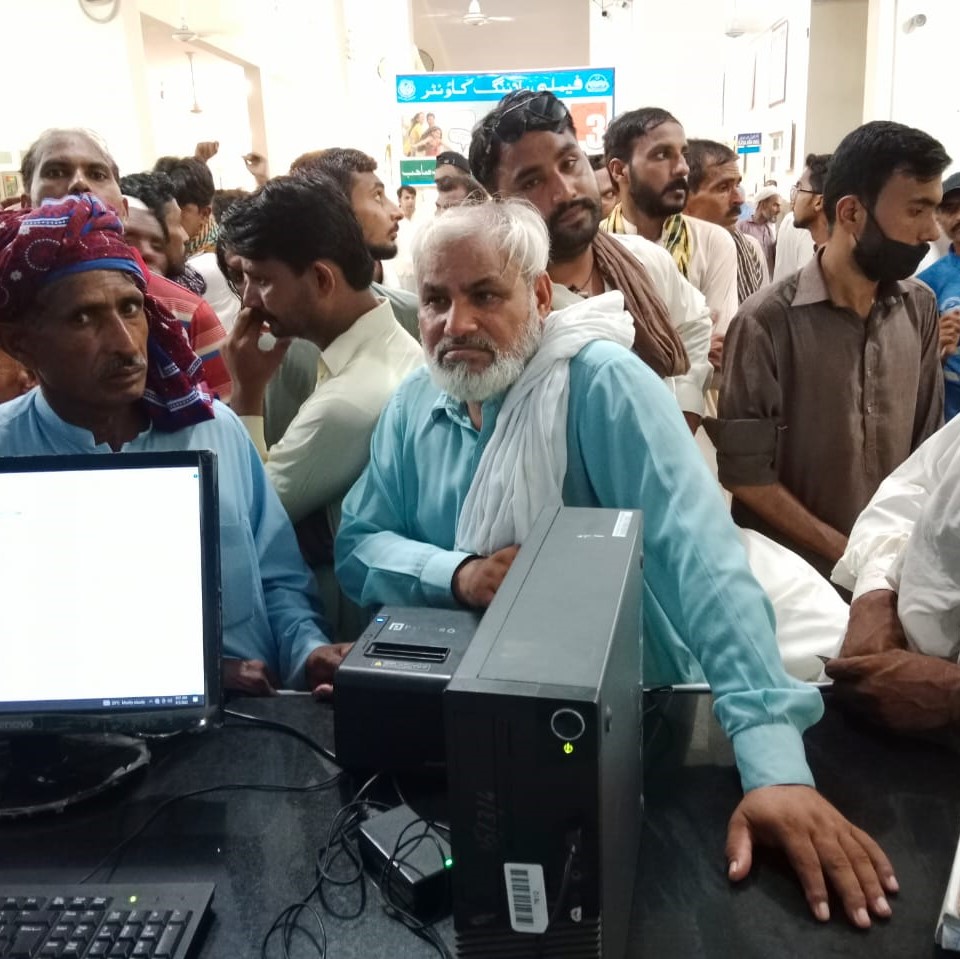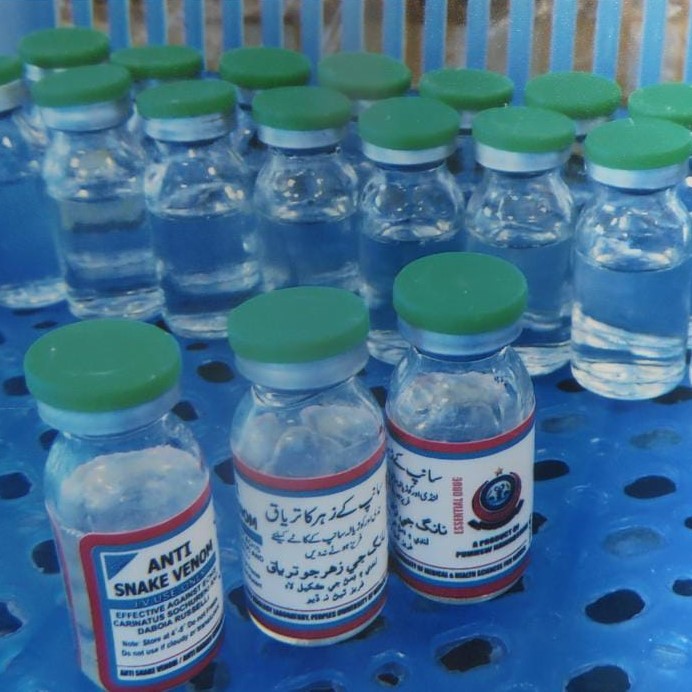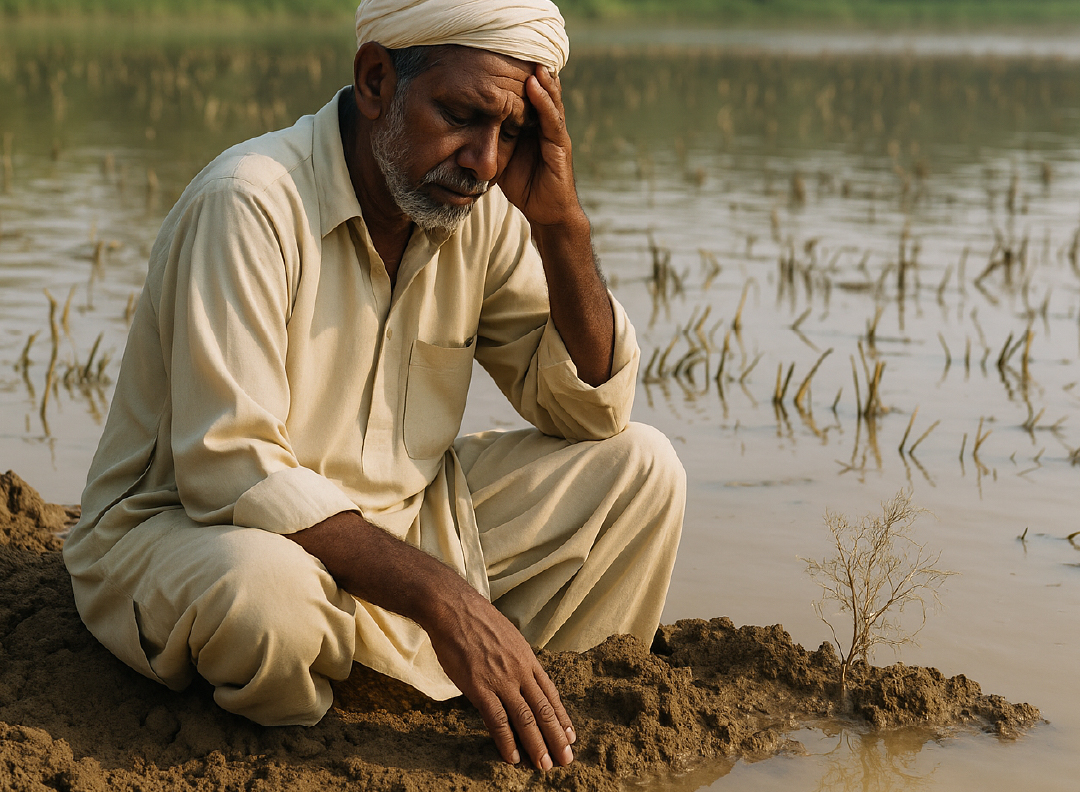Tando Allahyar's sixteen-year-old student, Bashir Ahmed, who worked on a poultry farm to cover his educational expenses, was bitten by a venomous snake one night while sleeping on the farm. He was rushed to the hospital for medical assistance, but the vaccine for snakebites was not available there. In the meantime, the venom had already spread throughout his body, and despite their efforts, he could not be saved, and he succumbed to the snakebite.
Bashir Ahmed hailed from the village of Peer kay in the Chambhar district of Tando Allahyar. His distraught parents believe that if the vaccine had been available, their son's life could have been saved.
In Sindh, incidents of snakebites are frequently reported in the districts of Tharparkar and Umerkot, primarily in desert areas. In hospitals, patients are tested for snakebite, and if available, they are administered Anti-Snake Venom (commonly known as snakebite vaccine).

According to the Health Department, during the past nine months (from January to August 31, 2023), one thousand three hundred and forty-eight (1,348) individuals in the Tharparkar district were bitten by venomous snakes. These patients were taken to various hospitals, including Civil Hospital Mithi, Diplo, Khim Johpar, Chachro, and Nangarparkar hospitals for vaccine administration.
In addition to the "Black Cobra" snakes, the region also has another type of snake known as Bungarus krait. Locally people call it Peyin Bla. It can also climb over the bed and has become a sign of fear and terror in the area.
Bangarus doesn't bite but delivers venom into a person's mouth or nose. This venom can create a sudden blockage in the person's throat. Breathing becomes difficult, and exposure to bright light during this situation can also result in vision loss.
The snake's venom typically affects the human brain, leading to the patient's death.

However, health authorities in Tharparkar claim that there are no fatalities due to snakebites in the region. If a patient reaches the hospital in time, their life can be saved.
According to the report from Mithi Hospital, last year, 512 patients with snakebites were brought in. Incidents of snakebites are more common in the warmer months. In June, 103 cases were reported, 139 in July, and 102 in August.
The number of affected individuals remains relatively consistent each year. Affected individuals are administered between four to thirty-six doses of anti-Snake Venom in Sindh's government hospitals. The duration for administering the vaccine ranges from four to eight hours. This vaccine is imported from India.
In 2008, the People's Party government in Sindh decided to establish a laboratory worth 300 million rupees to produce vaccines for snakebite treatment.
Former President Asif Zardari had laid the foundation for the "Anti-Snake Venom and Rabies Serum Laboratory" near Nawabshah in Sindh. This laboratory was built alongside the Livestock Training School, and its administration was handed over to the Livestock Department.

In 2017, the Skarnd Laboratory conducted experiments to create a vaccine for the first time. In 2018, the laboratory's annual budget was allocated at 264 million rupees. However, this project could not be sustained, and the work on the vaccine remained incomplete even after 15 years.
Initially 28 people worked in the laboratory. The staff of 24 people and the building are still there, but even after 15 years, the vaccine has not been developed here.
The project to prepare the Anti-Snake Venom vaccine had started, appointing Dr. Naeem ul Haq Qureshi as the project director. In 2019, as funds were not allocated to the laboratory, he filed a petition in the Sindh High Court.
In his report submitted to the courts, Dr. Naeem ul Haq Qureshi had mentioned that in the world, only three countries manufacture Anti-Snake Venom from Capralk Acid, and Pakistan is the fourth country possessing this capability.

According to the report, India produces the vaccine from ammonium sulfate. Pakistan is importing the vaccine from there at a cost of four thousand rupees per dose, and patients typically receive 20 to 30 doses of this vaccine.
The report stated that the vaccine produced from Capralk Acid is more effective and beneficial. With a single dose of this vaccine, individuals can recover, and its price is around five hundred rupees.
The report further states that due to non-availability of vaccine in Pakistan, about 1500 people die from snakebites every year. Skarnd laboratory has the capacity to make vaccine for six lakh people annually. It can meet the demand of the entire world.
In the report, Dr. Naeem ul Haque claimed that he had prepared 500 samples of snake vaccine with the help of two assistant professors and 28 employees in the laboratory. The laboratory also has the facility to manufacture dog bite vaccines. However, the production and trials of snake vaccines in Skarnd have since been stopped.

On the order of the court, the Secretary of health visited the anti-snake venom and rabies serology laboratory in the same year and submitted his report to the court. In this report too, Skrand laboratory was declared as a standard laboratory for making snake vaccine.
Pakistan Drug Authority also inspected this laboratory. After this report, in 2019, funds of 264 million rupees were allocated to the laboratory in compliance with the court order.
Dr. Naeem said that the loan of 110 million rupees was repaid. Because the laboratory had taken loans and continued the vaccine experiments due to non-availability of funds. 10 million were paid to employees. The rest was withdrawn by the government, but the laboratory equipment could not be purchased.
Also Read

Healthcare crisis in Nankana Sahib: Shortage of vital medicines and equipment puts patients in distress
In March 2022, Dr. Naeem resigned from his position, alleging that political pressure was being exerted on him to hire inexperienced individuals in the laboratory.
Laboratory employees claim that to test the snake vaccine, four horses and three camels were purchased. However, these animals were not provided with proper care. One horse has already died, and the remaining animals are currently sick. Three hundred snakes were also present in the laboratory; they were taken care of by the assigned Jogis.
The current in-charge of Skrand Laboratory, Ejaz Laghari, mentions that this modernized laboratory has not benefitted anyone. During the tenure of the previous in-charge, snakes and animals went missing. There is also no air conditioning in the office.
He complains that the laboratory is now running out of funds. Employees are not receiving their salaries, and the animals are starving. Additionally, he claims that now the snake vaccine will be prepared and handed over to the Health Department.
Published on 15 Sep 2023



















